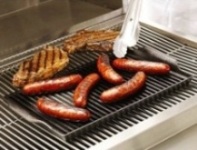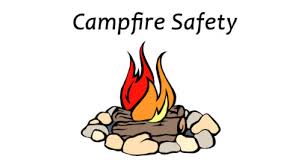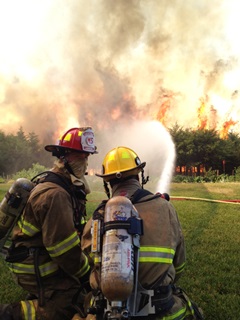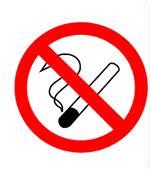Every year Americans look forward to summer vacations, camping, family reunions, picnics, and the Fourth of July. Summertime, however, also brings fires and injuries due to fireworks and outdoor cooking. Knowing a few fire safety tips and following instructions will help everyone have a safe summer.
Fireworks Safety
The best way to protect your family is not to use fireworks at home – period. The Lawrence-Douglas County Fire Medical department recommends attending public fireworks displays and leaving the lighting to the professionals.
For more Fireworks Safety and City Guidelines to fireworks visit here: Fireworks Safety
Barbecue Safety

It is important grilling enthusiasts and basic backyard cooks alike to remember grilling safety as the outdoor cooking season heats up.
- Before using a gas grill, check the connection between the propane tank and the fuel line. Make sure the venturi tubes – where the air and gas mix – are not blocked.
- Locate your portable grill at least 10 feet from combustible walls, overhangs and fences.
- Do not wear loose clothing while cooking at a barbecue.
- Be careful wen using lighter fluid. Do not add fluid to an already lit fire because the flame can flashback up into the container and explode.
- Keep all matches and lighters away from children. Teach your children to report any loose matches or lighters to an adult immediately. Supervise children around outdoor grills
- Dispose of hot coals properly – douse them with plenty of water, and stir them to ensure that the fire is out. Never place them in plastic, paper or wooden containers.
- Never grill/barbecue in enclosed areas – carbon monoxide could be produced.
- Make sure everyone knows to STOP, DROP and ROLL in case a piece of clothing does catch fire. Call 9-1-1 if a burn warrants serious medical attention.
- Did you know that grilling on apartment balconies is prohibited in the City of Lawrence?
The Lawrence City Commission adopted the 2012 International Fire Code and local amendments with an effective date of July 1, 2013. The International Fire Code section 308.1.4 specifically states: “Charcoal burners and other open-flame cooking devices shall not be operated on combustible balconies or within 10 feet (3048 mm) of combustible construction.”
Exceptions:
- One-and-two family dwellings.
- Where buildings, balconies and decks are protected by an automatic sprinkler system.
- LP-gas cooking devices having LP-gas container with a water capacity not greater than 2 1/2 pounds [nominal 1 pound (0.454 kg) LP-gas capacity].
- See our Fact Sheet – Grilling on Apartment Balconies (PDF).
- Grilling Safety Sheet (PDF) offered by NFPA.
Campfire Safety

- Always follow the campfire rules for the area where you are camping or living.
- It is important to make sure that all members of your family know to Stop, Drop, and Roll if an article of clothing ever catches on fire. Instead of just talking about it to young children, practice the steps together.
- Build campfires where they will not spread, away from dry grass and leaves.
- Keep campfires small, and don’t let them get out of hand.
- Keep plenty of water and a shovel around to douse the fire when you’re done. Stir it and douse it again with water.
- Never leave campfires unattended.
Summer Travel
- Choose a Fire-Safe Motel or Hotel – When staying at a motel or hotel, choose one that has a fire sprinkler system and smoke alarms. Ask at the front desk clerk about the fire notification system and what the fire alarm sounds like. Review the fire escape plan posted in the room. Read the checklist for hotel fire safety before you settle in for the night.
- Identify the Exits – Whether you’re in a hotel or a restaurant or a museum, always make sure you are familiar with where the closest exits are located. This will be very important if a fire breaks out.
- Don’t Throw Lit Cigarettes out of the Car – Never throw a lit cigarette, match, or cigar out of a car window or onto the ground. It could ignite dry vegetation or even in rare circumstances, ignite fumes from your vehicle.
Brush, Grass, Tree Fire Safety
On average, 976 brush, grass, or forest fires were reported per day in the United States.

- Keep weeds and grass cut.
- Provide enough water to keep plants healthy and green. Keep irrigation systems in good working order.
- Remove dead and piled up vegetation, and dispose of it properly.
- Properly dispose of trash and debris.
- Stack any and all that is being put away for storage away from structures, fences, or any other combustible materials.
- Create at least 30 foot safe zone around your home that is free of anything that may ignite and spread to the structure.
- Keep the roof clear. Sweep gutters and eaves, and wash the roof on a regular basis to get rid of dry needles and leaves.
- Trim dead wood off trees that are located close to the residence.
- Avoid parking cars, trucks or recreational vehicles on dry grass or brush. Exhaust systems on vehicles can reach a temperature of more than 1,000 degrees; it only takes about 500 degrees to start a brush fire in hotter weather.
- Maintain a 10-foot area that is free of brush and shrubbery around grills and propane tanks.
- ALWAYS dispose of cigarettes carefully. Do not ever drop cigarettes or matches that are not fully extinguished.
- Make sure to keep a shovel, bucket of water, fire extinguisher, or other fire suppression tools on hand in case of emergency.
Smoking
Smoking-related fires are also a concern. Provide plenty of large, deep ashtrays and check them frequently. Cigarette butts can smolder in the trash and cause a fire, so completely douse any smoking material with water before discarding.

- The Lawrence Public and Workplace Smoking Restriction Ordinance No. 7782 is effective July 1, 2004. The ordinance restricts smoking in all enclosed public places and places of employment. The law also requires that every business have a written clean indoor air policy and that it be communicated to its employees.
- After a party, always check on, between and under upholstery and cushions and inside trashcans for smoking materials that may be smoldering.
- Keep matches and lighters up high, out of sight and out of reach from children – preferably in a locked cabinet. If your child sees you lighting candles or starting the fireplace, they may think it’s OK for them to do it. Teach your kids about fire safety. Matches and lighters are “tools” for adults, not “toys” for children.
- Don’t Throw Lit Cigarettes out of the Car – Never throw a lit cigarette, match, or cigar out of a car window or onto the ground. It could ignite dry vegetation or even in rare circumstances, ignite fumes from your vehicle.
*Sources: United States Fire Administration and the National Fire Protection Association.*
